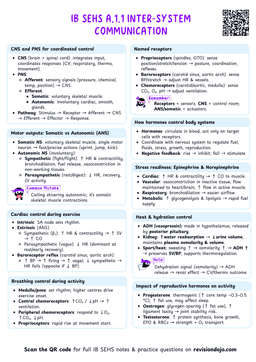Goal Orientation Theory
Goal Orientation Theory
Goal orientation theory (Nicholls, 1989), also referred to as achievement goal theory, suggests that in achievement-based settings such as sports and exercise, individuals are primarily motivated to demonstrate high ability while avoiding the appearance of low ability.
- Goal Orientation Theory suggests that individuals strive to feel successful, but they define success in different ways.
- Success can be evaluated internally (task-oriented) or externally (ego-oriented).
- Motivation and effort levels differ based on whether an athlete is task- or ego-oriented.
- Three key factors determine motivation according to goal orientation theory:
- Achievement goals
- Perceived ability
- Achievement behavior
- Perceived ability influences an individual’s behavior based on whether they adopt task or ego goals.
- Task-Involved Individuals: Success is self-referenced, not compared to others. Behavior is generally positive:
- Persistence in the face of challenges.
- Effort is maintained.
- Preference for challenging tasks.
- Intrinsic interest in the activity.
- Ego-Involved Individuals: Success is judged based on comparison to others
- Task-Involved Individuals: Success is self-referenced, not compared to others. Behavior is generally positive:
- How Can a Motivational Climate Influence an Athlete’s Achievement Orientation?
- Key Considerations:
- Motivational Climate: The environment that shapes an individual's motivation to achieve goals.
- Achievement Goal Orientation: The type of goals athletes set for themselves, such as mastery (self-improvement) or performance (comparison to others).
- Achievement Motivation: A personality trait that drives individuals to succeed in different areas of life.
- Types of Motivational Climates:
- Competitive & Outcome-Focused Climate: Emphasizes winning, rankings, and outperforming others.
- Cooperative & Mastery-Focused Climate: Encourages self-improvement, effort, teamwork, and personal development.
- Key Considerations:
1. Task-Oriented Success Perception
- Athletes with a task-oriented mindset define success based on personal improvement, effort, and mastery of skills rather than comparisons with others.
Characteristics of Task-Oriented Athletes
- Focus on self-improvement and development of skills.
- Value effort, persistence, and learning over winning.
- See challenges as opportunities for growth rather than threats.
- Maintain high intrinsic motivation (driven by personal satisfaction).
Benefits of Task Orientation
- Leads to long-term motivation and enjoyment in sport.
- Encourages resilience and perseverance, reducing fear of failure.
- Enhances self-confidence as success is based on effort rather than external comparison.
A swimmer aiming to improve their personal best time rather than focusing on beating competitors.
2. Ego-Oriented Success Perception
- Athletes with an ego-oriented mindset define success based on comparison with others and outperforming opponents.
- Their motivation is linked to external validation and social comparison.
Characteristics of Ego-Oriented Athletes
- Measure success by winning or ranking higher than others.
- Value beating opponents over self-improvement.
- Often focus on demonstrating superiority rather than effort.
- More likely to experience anxiety and fear of failure when faced with tough competition.
Drawbacks of Ego Orientation
- Can lead to low motivation if an athlete consistently faces stronger opponents.
- Increases stress and pressure to perform.
- May result in poor sportsmanship (e.g., cheating or avoiding difficult challenges).
A tennis player who only feels successful if they defeat all their opponents, regardless of how well they played.
3. Balancing Task and Ego Orientation
- While task orientation is generally linked to positive motivation and long-term development, some ego orientation can be beneficial when balanced with a strong task-oriented mindset.
Strategies for Coaches and Athletes:
- Encourage self-improvement goals rather than only outcome-based goals.
- Recognize that competition is valuable, but not the only measure of success.
- Use performance-based feedback rather than comparison-based feedback.
- Foster a growth mindset, where failure is seen as a learning opportunity.
- Goal orientations refer to an individual's tendency to be task-involved or ego-involved, shaped by early social experiences at home, school, and through sports participation.
- While goal orientations can change over time, they tend to remain relatively stable in the short term.
- Nicholls proposed that task and ego goal orientations are independent, meaning a person can be high or low in both simultaneously.


